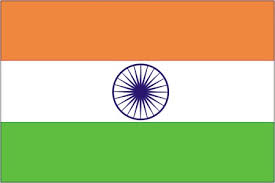Statement by Shri Ravi Shankar Prasad, Hon’ble Union Minister of Law and Justice, Government of India at the 14th United Nations Congress on Crime Prevention and Criminal Justice [7-12 March, 2021 at Kyoto, Japan]
Your Excellency Madam President,
Excellencies, Ladies and Gentlemen,
It is my privilege and pleasure to address this 14th United Nations Congress on Crime Prevention and Criminal Justice on globally important theme “Advancing Crime Prevention, Criminal Justice and Rule of Law: towards the achievement of 2030 agenda”
2. One of the key targets of Sustainable Development Goals 2030 is the guarantee of robust institutions and enforcement systems that provides access to justice dispensation framework which is effective, inclusive and transparent. This is an equally important parameter within the SDG India Index as well. In fact, Rule of Law has been a core civilizational value of Indian society since ages. Our ancient scriptures proclaim क्षत्रयस्य क्षत्रम यत धर्म:' which means "Law is the King of Kings, Law is supreme'. The Preamble to our Constitution also encapsulates this ethos. The governance framework in our country has also made Rule of Law as its bedrock in the discharge of its obligation. As the largest democracy in the world, India abides by its obligation of being a part of the planet where all people enjoy peace and prosperity.
3. The hallmark of Indian democracy is that justice is not only guaranteed to every citizen but also guaranteed on time. Access to Justice during Covid pandemic period was also ensured by harnessing digital technology. Our courts emerged as global leaders in virtual hearings. Other notable success include establishment of virtual courts, e-filing, Tele-Law and National Judicial Data Grid holding data on more than 30 million ongoing and decided cases, which have all led to ease of justice. We are willing to share our skill and knowledge with other friendly foreign nations.
4. The doctrine of separation of powers is one of the cardinal precepts of our Constitution. The Indian Constitution envisages a fine and vibrant system of checks and balances with clearly defined roles for the legislature, executive and judiciary. By respecting each others jurisdiction and dignity, these three pillars have complemented and supplemented each others efforts in resolving various challenges and in working for the greater good of the nation and its people.
5. India has established a seamless network for tracking crimes and criminals through Crime and Criminal Tracking Network & Systems (CCTNS). This system shares crime and criminals data among Police Stations, Courts, Prisons, Forensics and Prosecution for effective justice delivery. Till December 2020, 308.1 million police records were available in CCTNS National database and 34.8 million FIRs had been registered using CCTNS software.
Distinguished Delegates,
6. India, like many countries in the world, has been facing the menace of terrorism. The world needs to adopt a policy of zero tolerance towards terrorism and towards all those who aid and abet terrorist acts and provide safe haven to their perpetrators. It is high time that all countries come together to adopt a Comprehensive Convention on International Terrorism with the objective of providing a legal framework to combat one of the principal challenges to humanity today.
7. India has initiated National Risk Assessment exercise to identify the sectors that are susceptible to money laundering and terror funding, and plug the loopholes and this is in line with the Financial Action Task Force recommendations and this exercise involves collection of data from various sectors, assessing the Money Laundering/Terrorism Financing risks and preparation of Action Plan to mitigate the Money Laundering/Terrorism Financing risks.
8. Owing to its size and diversity, the Indian Police has had rich experience of engaging with multiple issues, ranging from routine Crime and investigation, to the Dark Net and Counter Terrorism. Over the years through capacity building initiatives, these experiences have been shared with the police and security officials across the globe. India would remain ever willing to share its learnings in the domain of policing, with partners worldwide.
9. The Narcotics Control Bureau (NCB) is the National Nodal Agency created for preventing and combating drug abuse and illicit trafficking in Narcotic Drugs and Psychotropic Substances. It has been made responsible for implementation of the International Obligations under various United Nation Conventions against illicit trafficking of narcotic drugs and psychotropic substances to which India is a signatory. For coordination among various Central and Provincial Agencies, the Narco Coordination Centre (NCORD) mechanism was set up to conduct regular meetings with these agencies for effective Drug Law Enforcement. This NCORD system has been restructured into 4 tiers up to district level for better coordination and cooperation.
Distinguished Delegates,
10. I would also like to inform you that India has enacted Fugitive Economic Offenders Act, 2018 to deter economic offenders from evading the process of Indian law by remaining outside the jurisdiction of Indian courts.
11. Indian Cyber Crime Coordination Centre called I4C has been set up to deal with all types of cybercrimes in a comprehensive and coordinated manner. A National Cyber Crime Reporting Portal has also been launched which is a citizen-centric initiative that enables citizens to report cyber crimes online through the portal.
12. India has taken up an extensive exercise for repealing old and archaic laws and has made available all Central Act as well as Acts passed by Provincial Governments at a portal named as ‘INDIA CODE’.
13. Now, I would like to express my gratitude to the Government of Japan and UNODC for organization of this Conference and hope that the deliberations at this Conference will help in working out effective strategies to deal firmly with terrorism and organized crimes so that we are able to achieve 2030 agenda.















